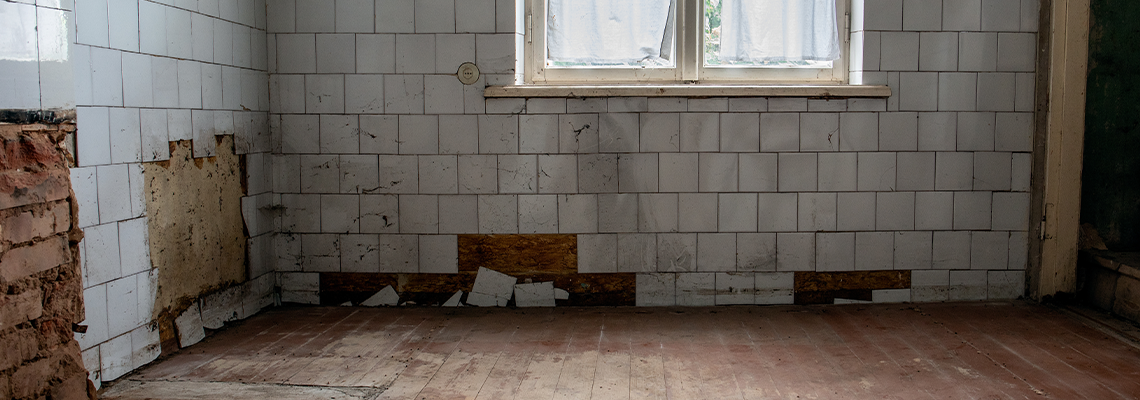
Pennsylvania Laws About Withholding Rent
In Pennsylvania, landlords are required to provide their tenants with a property that is in good condition and meets the necessary health, structural, and safety standards. Under state law, a tenant may be eligible to withhold rent if the premises are uninhabitable (unsuitable for living in) and the landlord is yet to fix the defect after being informed. A reliable Pennsylvania real estate attorney has the resources to tell you about state laws addressing withholding rents and help determine the best course of action.
At Marc V. Taiani, Esquire and Allegheny Attorneys at Law, P.C., I provide experienced legal guidance and advocacy to clients in landlord-tenant dispute matters involving withholding rents. As your legal team, I can tell you about the requirements and conditions that must be met to fight against the withholding rent and help you through the legal procedures involved. My firm proudly serves clients throughout Pittsburgh, Allegheny County, Butler County, and Washington County, Pennsylvania.
When Can a Tenant Legally Withhold Rent?
According to Pennsylvania law – the City Rent Withholding Act – a tenant may be able to legally withhold rent if their apartment is “certified to be unfit for human habitation.” Hence, if there is a serious damage to the building which makes the unit uninhabitable, a tenant is within their right to withhold rent.
However, withholding rent is a common cause of disputes between landlords and tenants and often leads to eviction. According to Eviction Lab, landlords across the United States file about 3.6 million eviction cases in a typical year. Hence, before withholding, the tenant must have notified you (the landlord) about the repair issue and given sufficient time to fix the damage which caused the rental apartment to be uninhabitable.
Conditions That Must Be Met When Withholding Rent
Additionally, tenant can’t just decide to stop paying your rent, regardless of the situation. In order to withhold rent – and avoid legal repercussions or possible eviction – there are certain conditions that must be met. These include:
The local housing code enforcement officer must inspect and declare the unit unsuitable for living in.
The tenant has informed the landlord about the problem through a written notice.
The tenant has allowed a reasonable amount of time for the landlord to fix the damage.
The landlord failed to carry out the necessary repairs as requested.
A trusted lawyer can evaluate every detail of your unique situation and determine the best course of action.
Problems that can Cause Withholding Rent
According to Pennsylvania’s implied warranty of habitability statutes, here are some serious problems with a unit that may cause a tenant to withhold all or part of the rent:
No working sewage system.
Unsafe stairs, handrails, doors, and porches.
Unable to lock the rental apartment securely.
Leaking roof
Insect and rodent infestation
Lack of electricity
Faulty electrical wiring which could result in fires.
Broken refrigeration unit that causes lack of food storage.
Lack of cold or hot running water.
Lack of heat during the cold winter months.
Unsafe structural issues that make living in the building very dangerous to occupants.
An experienced attorney can enlighten you about the requirements for withholding rent and your rights.
Requirements for Withholding Rent
Additionally, if the tenant decides to withhold the rent, these are some of the steps they may take:
Researching local laws about withholding rent in the area.
Find out about circumstances that justify withholding rent and the amount of time needed to give your landlord to carry out the repairs.
Notifying you (the landlord) about the problem through a written notice.
The tentant may collect evidence, such as pictures of the building damage or problem, and document the repair issues.
The tenant may give you a deadline to make the requested repairs.
They also may file a petition with the local court seeking permission to withhold rent.
Deposit the withheld rent with a neutral third party, the court, a separate bank account, or an escrow account created by the local housing agency.
Guidance You Can Depend On
Pennsylvania laws allow tenants to withhold rent if the rental units are uninhabitable. However, understanding the necessary requirements and conditions is crucial before withholding rent. Therefore, when considering withholding rent, consulting with a skilled real estate attorney is crucial for detailed guidance and to protect your legal rights.
Here at my firm, I am ready and poised to advise and guide clients through the complex procedures involved in withholding rent. In addition, I will direct you through the legal processes, withhold a reasonable amount of rent, and ultimately get your landlord to fix the damage or help you achieve other legal remedies.
Contact me at Allegheny Attorneys at Law, P.C. today to arrange a simple consultation with a trusted real estate lawyer. My firm proudly serves clients in Pittsburgh, Pennsylvania, as well as throughout Allegheny County and all of the surrounding counties, including Westmoreland, Butler, Armstrong, Beaver, and Washington.
